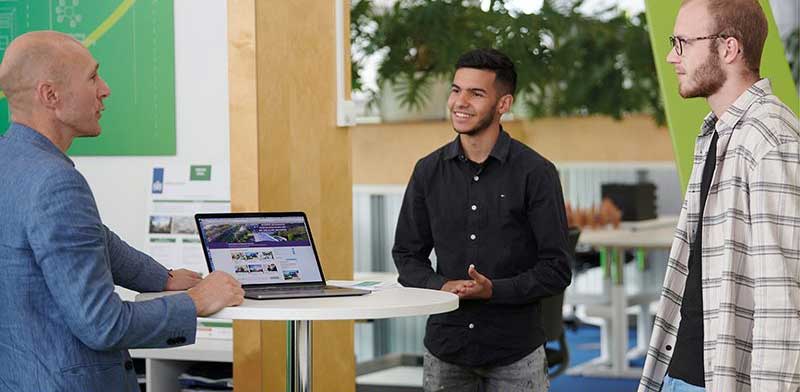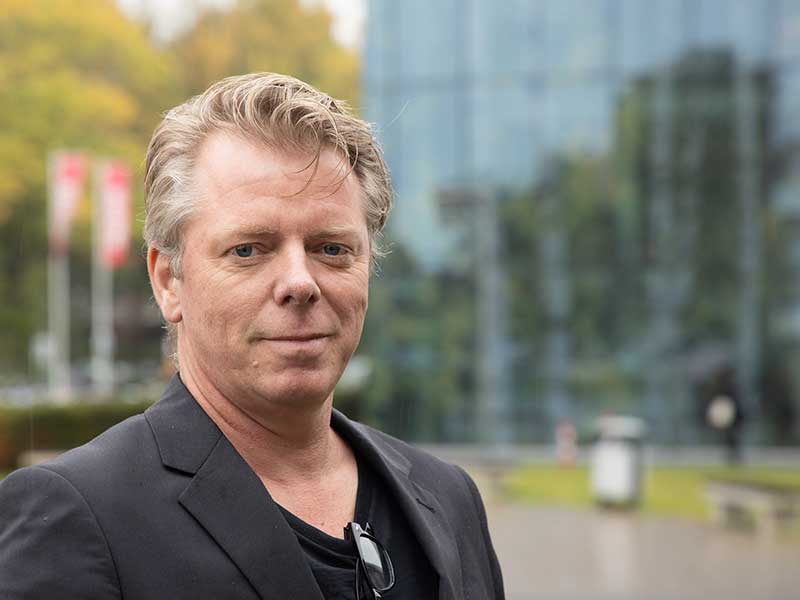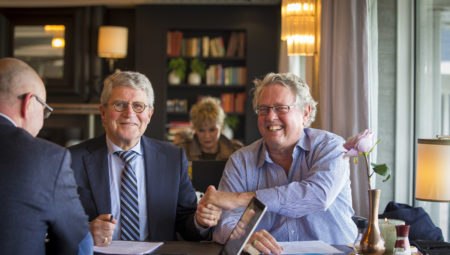It’s about 21st century skills. By this I certainly do not mean only soft skills, but also substantive skills”, says Ralph Simons, director of the Centre of Expertise Biobased Economy and member of the Acceleration Team of Circular Biobased Delta. In this function, he is in charge of the so-called Human Capital Agenda: a vision of the labour market in the coming years, to which educational institutions can align their curricula.
“We are facing a number of ‘wicked problems’ in our society that we will have to solve from multiple disciplines: the protein, material and energy transitions. And in our case, especially the last two of these. We try to provide research-oriented, entrepreneurial and well-educated professionals who, in our view, can take care of these transitions. People who can think analytically, who are critical and creative, who can work together and who are capable of solving problems in the field.”
Constant dialogue
“What that means for education and graduation requirements can only be determined in a constant dialogue between business, education and government. It must be a shared responsibility of the entire chain, because the labour market is changing rapidly. “Many professions that are commonplace now did not exist 10 or 15 years ago. We train today’s students mainly for the professions of the future. As a knowledge institution, we are never at the forefront, but we are certainly not at the back of the field.”
It is therefore a considerable challenge to draw up an agenda for the bio-based economy that is as concrete as possible. Especially when the perspectives from which various parties view education sometimes differ, as became apparent in a discussion during the Green Matchmaking Event in April. Entrepreneurs appear to be in particular need of people with practical skills, who are able to tackle the problems of the here and now. And preferably today rather than tomorrow.
Diverse wishes
Simons: “But what does that mean for education? In the biobased economy, we work together with very diverse companies, from a large chemical plant to a mushroom grower or a water board. We research dyes, biopolymers, biocomposites, building with mycelium, valorising agricultural residual streams, et cetera. It is a very diverse range of knowledge areas. With these companies, we have to think about a Human Capital Agenda. That is sometimes quite difficult, given the breadth of the field and the diverse wishes.” One thing is certain: “To make the chains in the bio-economy future-proof, we need young and old talent, from intermediate vocational education to university and including the continuing education programmes in the business sector. We will therefore have to organise more frequent meetings on this subject.” A broad network such as that of the Circular Biobased Delta, in which entrepreneurs as well as educational institutions, research centres and authorities are affiliated, is very useful.
This is also evident from the successes so far. Such as the joint Interreg project Boundless Biobased Education, in which an inventory was made of what biobased expertise is available in the Delta region and what skills and competences the biobased business community will need in the years to come. From the cooperation surrounding that project, a new project has meanwhile emerged, concerning bio-based construction.
Recently, a learning community was also established around biofuels. The CoE BBE is working with, among others, the Port of Moerdijk and the Green Chemistry Campus on a proposal to set up several learning communities in the region, with support from the European Commission’s Just Transition Fund, which promotes the greening of Europe. CoE BBE is also preparing a new, externally funded professorship that will focus specifically on chain cooperation in the biobased economy. “We have investigated whether there is a need for this. It looks good: all the signs are green!”
This article was produced in cooperation with Circular Biobased Delta.




